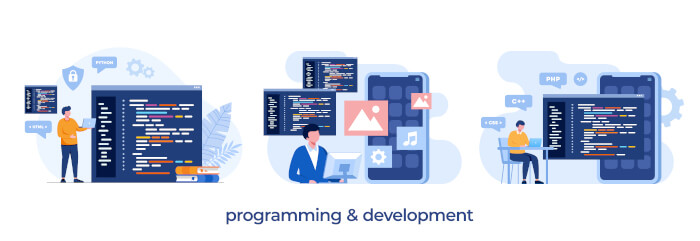Catalyst is an elegant, open source web application framework, extremely flexible yet very simple. This means that developers can help build applications that run on the web, or that run using protocols used for the web. Catalyst is designed to make it easy to manage the various tasks you need to do to run an application on the web, either by doing them itself, or by letting you “plug in” existing Perl modules that do what you need.
Catalyst is written using Moose, a modern object system for Perl. Its design is heavily inspired by such frameworks as Ruby on Rails, Maypole, and Spring.
Catalyst follows the Model-View-Controller (MVC) design pattern, allowing you to easily separate concerns, like content, presentation, and flow control, into separate modules. This separation allows you to modify code that handles one concern without affecting code that handles the others. Catalyst promotes the re-use of existing Perl modules that already handle common web application concerns well.
Catalyst is based on a “don’t repeat yourself” (DRY) principle, which means that definitions should only have to be made once.
Catalyst is used by a number of different popular sites including BBC iPlayer, Edit Grid, and Manchester Evening News.
Features include:
- Flexible.
- Supports a wide range of models.
- Toolkit-independent (REST & JSON support, specific plugins for Prototype JavaScript Framework, more).
- MVC framework.
- Support for many templating languages such as Template::Toolkit, Mason 2, HTML::Template.
- ORM – DBIx::Class, Rose::DB::Object, more.
- Supports Perl testing standards, Test Anything Protocol (TAP).
- Caching frameworks – Cache, Memcached, shared memory, and more.
- Easy to use dispatching mechanism.
- Integrated development server.
- Supports all major webservers.
- Enables the use of over 12,000 Perl modules available on CPAN for session management, user authentication, caching and more.
- Internationalization support.
Website: metacpan.org/pod/Catalyst
Support: Manual
Developer: Sebastian Riedel
License: PAL and GPL
Catalyst is written in Perl. Learn Perl with our recommended free books and free tutorials.
| Popular series | |
|---|---|
| The largest compilation of the best free and open source software in the universe. Each article is supplied with a legendary ratings chart helping you to make informed decisions. | |
| Hundreds of in-depth reviews offering our unbiased and expert opinion on software. We offer helpful and impartial information. | |
| The Big List of Active Linux Distros is a large compilation of actively developed Linux distributions. | |
| Replace proprietary software with open source alternatives: Google, Microsoft, Apple, Adobe, IBM, Autodesk, Oracle, Atlassian, Corel, Cisco, Intuit, SAS, Progress, Salesforce, and Citrix | |
| Awesome Free Linux Games Tools showcases a series of tools that making gaming on Linux a more pleasurable experience. This is a new series. | |
| Machine Learning explores practical applications of machine learning and deep learning from a Linux perspective. We've written reviews of more than 40 self-hosted apps. All are free and open source. | |
| New to Linux? Read our Linux for Starters series. We start right at the basics and teach you everything you need to know to get started with Linux. | |
| Alternatives to popular CLI tools showcases essential tools that are modern replacements for core Linux utilities. | |
| Essential Linux system tools focuses on small, indispensable utilities, useful for system administrators as well as regular users. | |
| Linux utilities to maximise your productivity. Small, indispensable tools, useful for anyone running a Linux machine. | |
| Surveys popular streaming services from a Linux perspective: Amazon Music Unlimited, Myuzi, Spotify, Deezer, Tidal. | |
| Saving Money with Linux looks at how you can reduce your energy bills running Linux. | |
| Home computers became commonplace in the 1980s. Emulate home computers including the Commodore 64, Amiga, Atari ST, ZX81, Amstrad CPC, and ZX Spectrum. | |
| Now and Then examines how promising open source software fared over the years. It can be a bumpy ride. | |
| Linux at Home looks at a range of home activities where Linux can play its part, making the most of our time at home, keeping active and engaged. | |
| Linux Candy reveals the lighter side of Linux. Have some fun and escape from the daily drudgery. | |
| Getting Started with Docker helps you master Docker, a set of platform as a service products that delivers software in packages called containers. | |
| Best Free Android Apps. We showcase free Android apps that are definitely worth downloading. There's a strict eligibility criteria for inclusion in this series. | |
| These best free books accelerate your learning of every programming language. Learn a new language today! | |
| These free tutorials offer the perfect tonic to our free programming books series. | |
| Linux Around The World showcases usergroups that are relevant to Linux enthusiasts. Great ways to meet up with fellow enthusiasts. | |
| Stars and Stripes is an occasional series looking at the impact of Linux in the USA. | |
